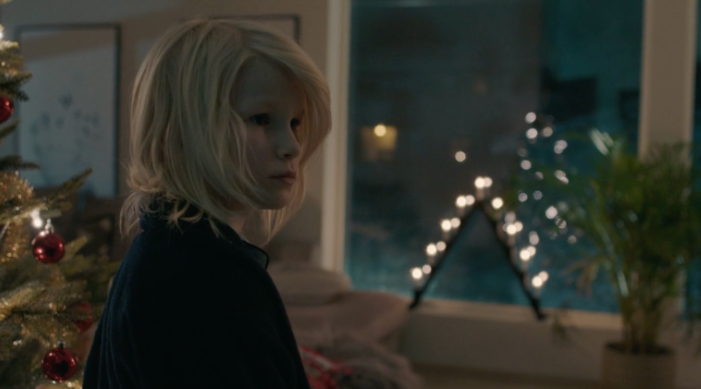Title: A Stranger Comes Home
Runtime: 11 min
Country: Norway
Director: Fredrik Mortensen
Placement: Best Short Film, Best Screenplay (Fredrik Mortensen)
Competition: March 31, 2020
Synopsis: It’s the night before Christmas eve and a little boy discovers a burglar in his home who claims to be his estranged grandmother. The burglar talks the boy into helping her rob his own home. The boy however, is looking for something different. A short film about family values.
FILMMAKER Q&A – Fredrik Mortensen – Director, Writer
GS: What was the inspiration for your film?
FM: My inspiration comes from knowing and reading about people with dysfunctional behavior and understanding that they often are both a perpetrator and a victim at the same time. I find them interesting, complex and fun characters to write.
I wanted to explore how dysfunctional behavior can be inherited and how it travels through generations.
GS: When did you conceive the idea for your film and how long did it take before it was realized?
FM: I wrote the first treatment back in 2013 and since I was working on my first feature documentary at the first time, it took 5 years until my short was realized.
GS: What was the most challenging aspect of working in a short film format?
FM: Short films means a small budget. Because of that I had to make some rules for myself, which actually serves as a frame that I can be creative in. I decided early that this story should take place in one location only and have very few actors. The original story is longer and more complex, so I had to decide what part of it can be told within my creative infrastructure and stand on its own.
GS: What was the most challenging aspect of your production?
FM: The films location is almost a character on its own and since we didn’t get all the funding we wanted, we needed to find the perfect house to serve as location.
Because of less funding, I also had to rewrite the script several times and cut an entire character. In the original story, the boy has a sister. So I ended up making a new character that combined the traits of both the boy and the sister. It was a challenge at the time, but now I think that it made the film better.
GS: Do you have any advice for first-time filmmakers?
FM: When working with short films, I think it’s essential to keep it simple and to the point. I think the script and well-written characters with clear goals and at least two dimensions to them, is the most important parts of the whole film. Writing a script is actually more about rewriting, because you will rewrite it all the time, even on set.
If you know you’re going to shoot on location, go out and find your location as early as possible. Then you can adapt your script to that particular location and use it creatively.
Be sure that the intent and the obstacle of your main character is strong enough to carry the whole film. Without a clear intent and a difficult obstacle, there really is no drama.
Inspiration from this can be found by inserting a engine to the story, and by that I mean some sort of question or mystery that is big and interesting enough to carry the whole film.
I also find it interesting to experiment with powerdynamics. You can basically shoot the same scene over and over again, with different powerdynamics and it will still be interesting to look at.
I think dialoge is the most fun thing to write and I think balance is the key here. Film is “show don’t tell”. Don’t go overboard with the dialogue. You’re writing a film, not for a podcast. I think that good dialoge should feel like music.
When you have a draft that is good to shoot, take some time to speak to your DOP and your sound designer and see if there are any parts in it that can be told in pictures or in sound, instead of dialogue.
Do the same thing with your actors, because they understand things about their characters that you dont. In short: Inviting your crew to use their creativity in the film, can help you see the film in another perspective and can be rewarding.


